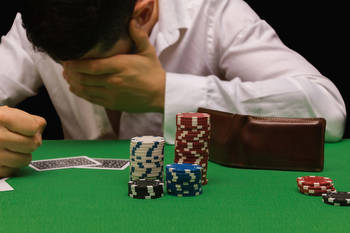New Study Reaffirms Link Between Problem Gambling And Loot Boxes

Loot boxes have been linked with problem gambling in various studies over the past few years, but a new meta-analysis of these studies has now provided a definitive correlation between the two issues and identified a need to better regulate in-game spending. With loot box revenue expected to reach $US20 billion ($25.6 billion) by 2025, it’s an issue that could soon have widespread impacts on the gaming industry, and on global mental health.
The study, carried out by the School of Psychology at Massey University in New Zealand and the University of Tasmania in Hobart, aimed to analyse specific research focusing on the correlation between loot box spending and problem gambling to determine how this relationship was formed and what impacts it had on vulnerable players.
“We found significant small-to-moderate positive correlations between loot box spending and gambling symptomology,” the report states. “Our results suggest a small, but replicable and potentially clinically relevant, relationship between gambling symptomology and loot box spending.”
The report states this occurs through the encouragement of in-game purchases to overcome difficult segments of games, as well as the existence of purchase incentives such as powerful items or timed exclusive goods like Halloween skins. Excessive purchases were also found to be encouraged by the “variable-ratio reward schedule”, a feature common to conventional gambling “known to promote rapid uptake and frequent repetition of behaviour”.
By further incentivising in-game purchases with auditory and visual cues (i.e. celebration noises and colourful lights), the study states developers create an atmosphere that strongly resembles slot machines. Given slot machines are heavily regulated in Australia and other regions, it stands to reason loot boxes should be given the same treatment.
This is a core concern identified in the study: “Some loot boxes meet common legal criteria of gambling: requiring an entry cost (consideration), having an outcome based on chance (chance), and providing a reward (prize) of value.” Despite this, many regions are reluctant to put legislation in place to protect vulnerable people from these tactics.
Given the existing, proven links between problem gambling and in-game purchases, the study reasons there should be greater attention paid to regulation of in-game purchases and providing psychological help for players who often and repeatedly purchase them in excess.
The results of the study make clear there’s a small-to-moderate link between problem gambling, excessive gaming and loot box spending, with further evidence that players who suffer from problem gambling appear to spend more on loot boxes than others without this issue. While the study recommended further research on the topic, it did state the implications of this link are dire.
“If loot boxes are disproportionately bought by those with problem gambling symptoms or who play excessively, this would require careful consideration of the implementation of appropriate harm minimisation techniques (e.g. limit setting) to mitigate the potential for harm to these vulnerable users,” it states.
The report also recommends that practicing clinicians working in fields of psychology and mental health understand loot boxes and how they can play into issues of problem gambling that may otherwise go unseen or untreated.
Debate continues to rage around loot boxes and how they impact vulnerable gamers, and it’s likely this discussion will continue long into the future. Clinical studies like these are an important step towards addressing concerns about loot boxes and protecting the most vulnerable gamers in our community — and we can expect to see more like them in future.




































